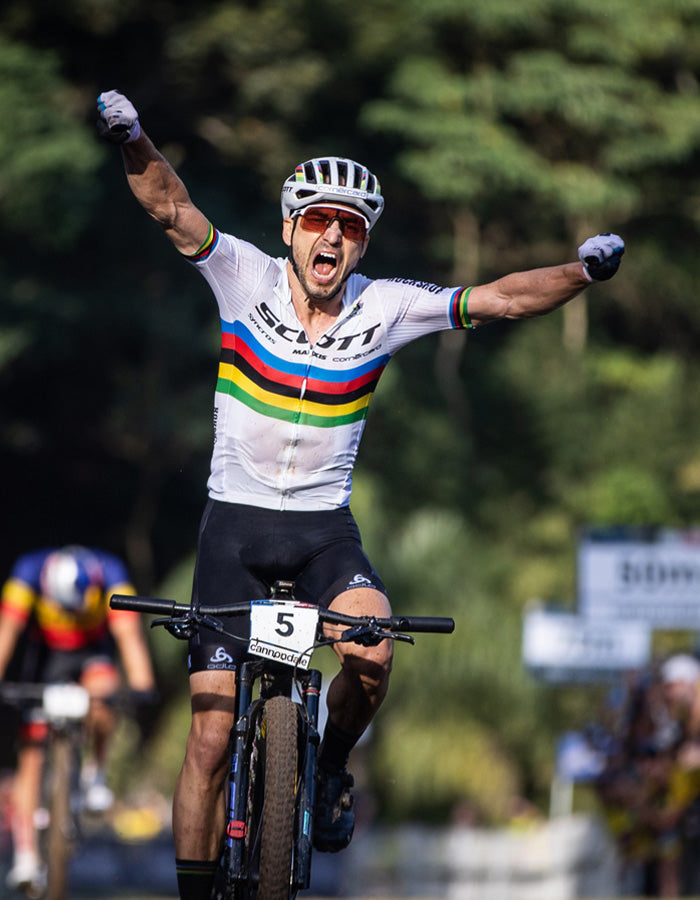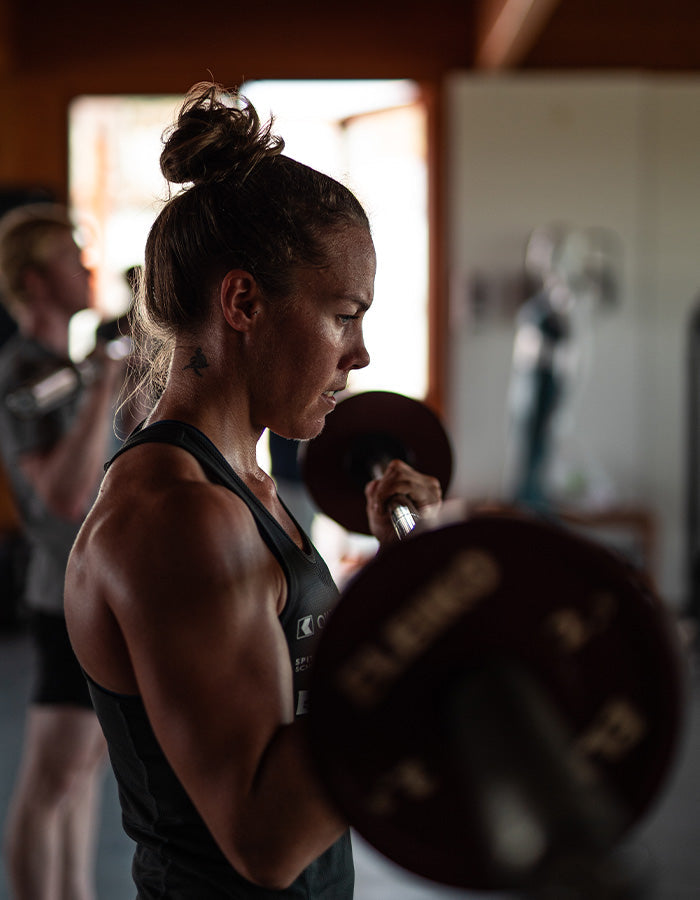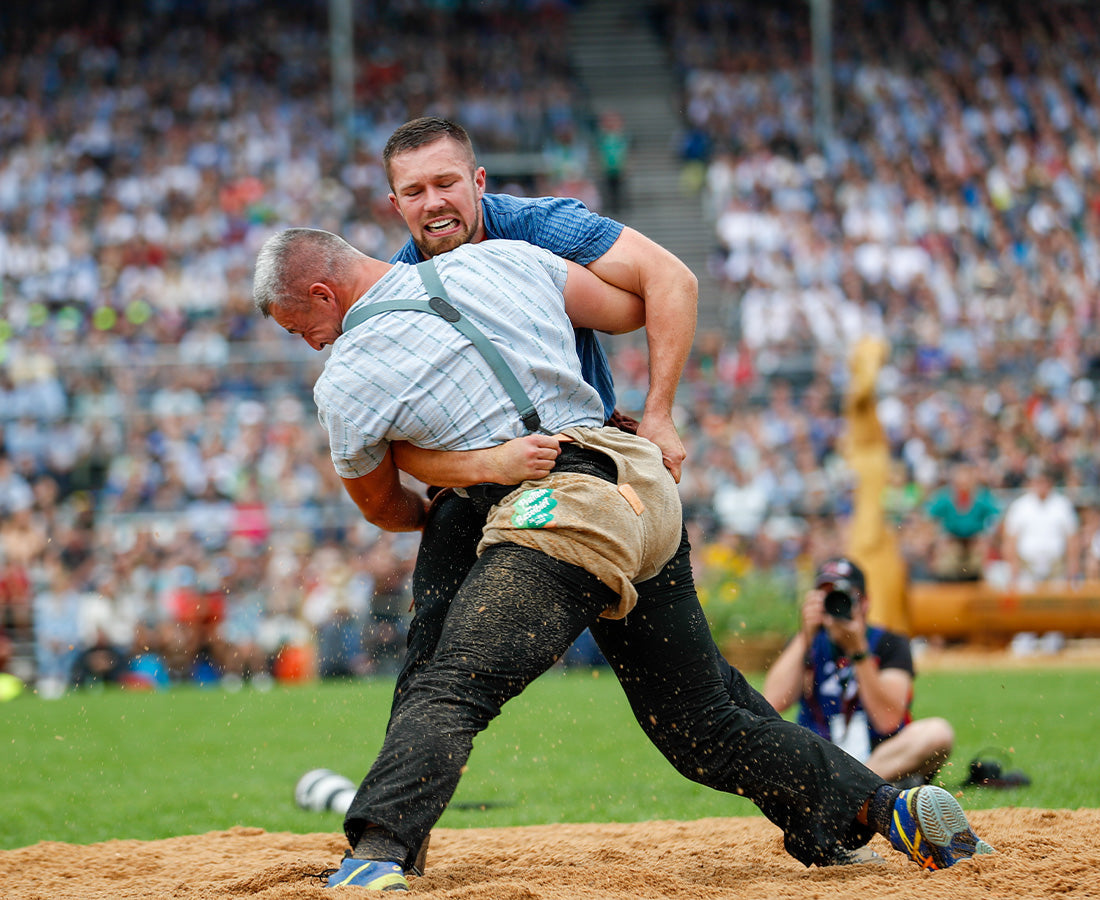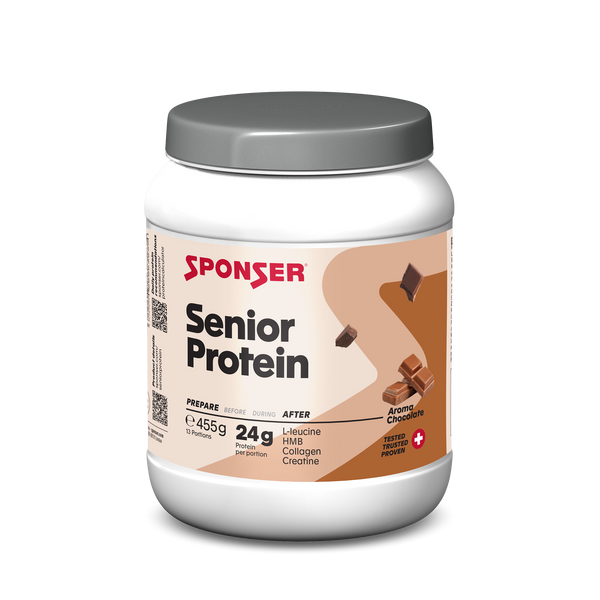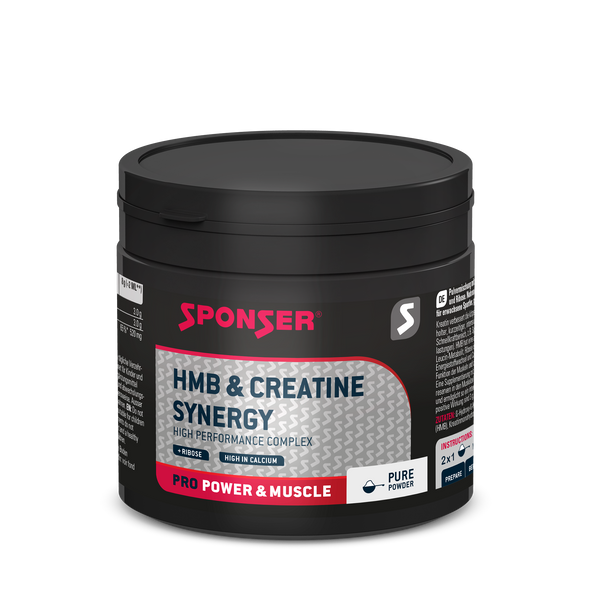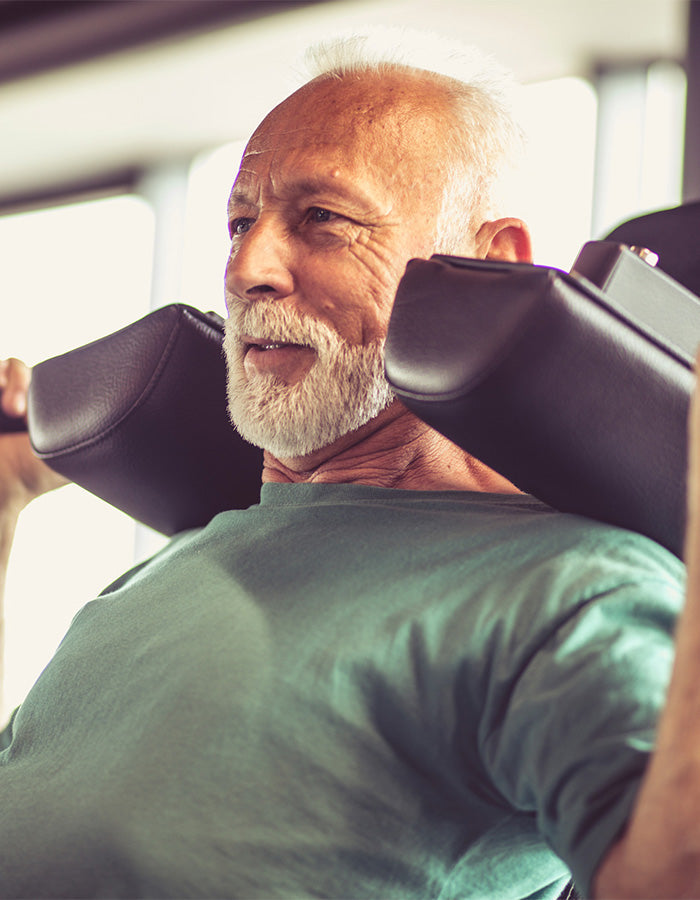
Maintenance of muscle mass of the elderly thanks to protein-rich diet
Sarcopenia describes the progressive loss of muscle mass and strength with advancing age and the resulting functional limitations of the elderly. In consequence, this leads to an increase in falls and associated injuries. The loss of muscle mass and strength usually occurs gradually, and the weight loss is compensated for by increasing fat mass, which means that it is not noticeable for quite some time despite increasing progression.
Cause of sarcopenia
The causes of muscular breakdown are found in hormonal changes (growth hormones, cortisol levels), chronic diseases, chronic low-grade inflammation, the breakdown of motor neurons in the spinal cord and the body's dwindling ability to neutralise oxidative stress. In addition, protein intake is often restricted in old age due to lack of appetite, reduced energy output and other consequences of altered daily structures. And as explained above, a reduced protein metabolism has a cumulative effect over time.
• Sedentary lifestyle / Nutrition
• Altered muscle protein metabolism / Sarcopenia
• Reduced muscle innervation / Oxidative stress / Low-grade inflammation / Hormonal changes / Genetic alterations
Almost one in two senior citizens affected
Studies show that in Europe and the USA, between 30-50% of people over 80 are affected by age-related sarcopenia. The loss of muscle mass and strength is accompanied by a loss of type II muscle fibres, which are mainly responsible for the movement behaviour of older people. If the formation of these fibres is slowed down and the breakdown accelerated, this inevitably leads to a further restriction in daily activity and thus to an acceleration of this degenerative process.
Means of intervention
While a protein-rich diet has become established among young people thanks to its numerous benefits (health consciousness, media, body cult, etc.), older people often lack sensitivity. Protein-rich products are mostly offered in connection with sporting activities, which means that older generations feel only partially addressed. Strength training and the targeted intake of L-leucine-rich protein supplements are proven and tested measures to prevent or at least greatly delay the progression of muscle loss.
Grace to its special composition,
SENIOR PROTEIN from Sponser Sport Food is particularly recommendable. According to research findings, the targeted intake of
HMB, an L-leucine metabolite, also appears to have a positive effect on sarcopenia.
Supplementation with creatine
Likewise, an increasingly known and recommended dietary intervention is the supplementation with creatine. Here, creatine supplementation in combination with resistance exercise appears to enhance the muscles' adaptive response to the training stimulus. The main causes are thought to be the higher training intensity and optimised recovery.
Conclusion
The nutritional interventions should be considered and applied in the context of a holistic therapeutic approach for optimal effectiveness. The combination of targeted strength training with adequate protein intake seems particularly promising against sarcopenia. However, this poses a challenge for senior citizens for various reasons. Reduced appetite is a major reason. Furthermore, meals are generally too rich in carbohydrates. Breakfast in particular, which traditionally consists of jam rolls and coffee with milk, offers great potential for optimisation and should be specifically enriched with protein-rich supplementary food.
Suitable supplements
•
SENIOR PROTEIN is an easily digestible whey protein isolate. Enriched with L-leucine, collagen hydrolisates, HMB and vitamin D3.
•
PROTEIN DRINKS are tasty ready-to-drink bottles, based on whey or milk protein. Very convenient on the go, for example to take to the training center as a post-workout meal.
•
HMB & CREATINE SYNERGY combines creatine and HMB, both of which are particularly suitable for seniors. To add to protein supplements, foods or beverages.
Related articles
goal
» healthy ageing
shop
» power & muscle
on
» protein
on
» muscle building
on
» creatine
Literature on request from the author
Author: Yvonne Forster
dipl. eng. food sciences UAS
dipl. dietitian HS

